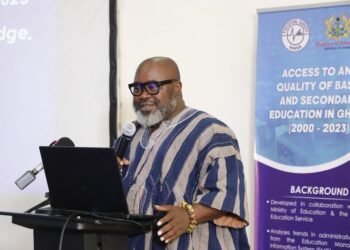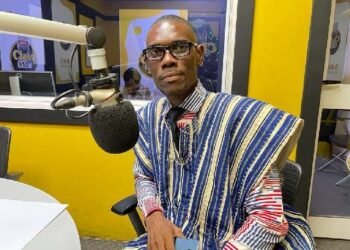Many artists struggle with live-performance due to a lack of experience, which hinder their artistic expression and connection with audiences.
In the realm of music, the studio serves as a sanctuary where artists craft their sound, meticulously layering tracks and perfecting melodies. Yet, when it comes time to step into the spotlight, many artists falter.
The transition from studio to stage is fraught with challenges, and for many emerging musicians, the lack of experience in live-performance significantly impedes their ability to connect with audiences and convey their artistic vision.
Ghanaian dancehall artist, Epixode, has called on fellow musicians, especially younger ones, to improve their live-performance skills.
According to him, mastering such skills is essential for ensuring longevity in a musical career.
“I think it’s essential for every artist and their team to invest in developing that side of the craft. An artist’s longevity often depends on their ability to engage and entertain live audiences.”
Epixode
He noted that many younger artists lack this training, having come up at a time when there was less emphasis on live band performances.
“Many artists struggle with this because live performances weren’t common during their formative years. Luckily, I come from a background where live music was integral, and I see the importance of honing this skill.”
Epixode
Performing live is an art form that requires a unique set of skills, distinct from those needed in the recording studio.
While studio work allows for meticulous editing and retakes, live-performance demands spontaneity, adaptability, and a deep understanding of audience dynamics.

Epixode noted that while some artists may excel in studio production or songwriting, his own identity is rooted in captivating live audiences.
“Every artist has their strengths. Some might be great in the booth, while others thrive in writing or performing. It’s a blessing to be acknowledged among the best performers in Ghana.”
Epixode
For many artists, especially those new to the scene, the pressure of performing in front of a crowd leads to anxiety, mistakes, and a disconnection from their music.
The fear of judgment or failure stifles creativity and inhibit the authenticity that defines great performances. Moreover, lack of experience often means that artists are unprepared for the technical aspects of live shows.
They struggle with sound issues, stage presence, or engaging with the audience effectively. These hurdles create a vicious cycle: poor performances lead to fewer opportunities, which in turn means less practice and growth.
Thus, the challenge of live-performance becomes a significant barrier for many aspiring musicians.
Path to Overcoming Live-Performance Anxiety

To combat the struggles associated with live-performance, artists adopt several strategies aimed at building experience and confidence.
One effective approach is to engage in structured practice. This involves not only rehearsing songs but also simulating live-performance conditions.
Artists practice in front of friends or family, record themselves, or even perform at open mic nights. These low-pressure environments allow artists to gain valuable experience and receive constructive feedback without the stakes being too high.
Additionally, mentorship plays a crucial role in an artist’s development. Experienced musicians provide guidance, share their own experiences, and offer tips on stage presence and audience engagement.
This mentorship creates a supportive network that encourages growth and resilience, allowing emerging artists to learn from the successes and failures of those who have walked the path before them.
While many artists struggle with live performances due to a lack of experience, it is essential to recognize that this challenge is not insurmountable.
Through structured practice, mentorship, and gradual exposure to live settings, artists develop the skills and confidence necessary to connect with their audiences authentically.
The journey from studio to stage is a vital part of an artist’s evolution, and with determination and the right support, even the most inexperienced performers transform their fears into a powerful stage presence.
In the end, the ability to captivate an audience is not merely a skill but an art form that is cultivated with time, effort, and resilience.
READ ALSO: Ghana Assures Citizens’ Safety Amid Israel-Iran Conflict




















